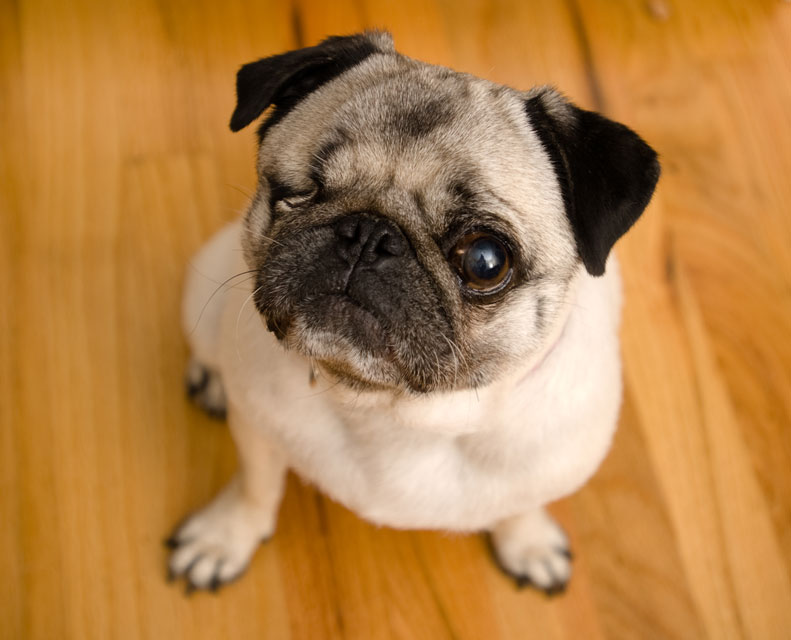Enucleation: Eye Removal in Dogs

Enucleation is the scientific term for surgically removing an eye. It's a necessary procedure for dogs sometimes. Understandably, it can cause some upset for a dog's owner when they find out their pet requires an enucleation. Learn more about enucleation and what to expect if your dog needs one.
When Is Enucleation in Dogs Necessary?
Enucleation is necessary when the dog has a condition that has resulted in blindness, and the eye is also painful. Some examples of times when those two criteria would be met include:
- Trauma to the eye, especially a puncture
- Tumor in the eye
- Untreated or poorly regulated glaucoma
- Unresponsive corneal ulcers
In the case of trauma, dogs with flat faces (brachycephalics) are more prone because the eyes bulge beyond the nose and are easily injured. Once vision is no longer possible, the veterinarian and owner must relieve the pain of the condition, and that's when enucleation is necessary.
Advanced Procedures May Save the Eye(s)
Many people strongly prefer not to have their pet's eye enucleated. While the dog's pain must always be considered first and foremost, some conditions may be treated with other specialized techniques. However, they require a veterinary ophthalmologist (a specialist) and are much more costly.
What Will My Enucleated Dog Look Like?
After the veterinarian performs the enucleation surgery, he or she sews the eyelids shut. The result is that area of the face looks smooth or like the dog's eye is closed. Owners of dogs with long fur often allow it to grow over the area as camouflage.
Surgical Recovery and Possible Complications
After an enucleation surgery, there will be some pain that the veterinarian will control with pain medication. You will likely need to continue that at home for a week or so. The dog will have stitches (that may need to be removed in two weeks or that may dissolve on their own) and possibly some mild swelling.
You will need to prevent your dog from rubbing at the surgery site. If you don't, he could tear out the stitches and traumatize the healing tissue there. That could lead to infection or long-term problems with the scar. An E-collar is often the best way to keep a dog from rubbing his face.
A possible complication of enucleation surgery is an infection of the incision. If that occurs, the area will puff up and may ooze green, yellow, or white, thick fluid. If you notice that, call your veterinarian right away. He or she will drain the area and prescribe antibiotics.
Practical Considerations
When a dog loses an eye, he will have more difficulty with depth perception and will lose peripheral vision from that side. He may stumble on steps, especially in the beginning, before he learns to compensate.
An enucleated dog may be startled if you approach from the side of the missing eye.
At home, you can help your dog by not moving furniture around and by making soft noise if you approach from the blind side.
You May Also Like These Articles:
Disclaimer: This website is not intended to replace professional consultation, diagnosis, or treatment by a licensed veterinarian. If you require any veterinary related advice, contact your veterinarian promptly. Information at DogHealth.com is exclusively of a general reference nature. Do not disregard veterinary advice or delay treatment as a result of accessing information at this site. Just Answer is an external service not affiliated with DogHealth.com.
Notice: Ask-a-Vet is an affiliated service for those who wish to speak with a veterinary professional about their pet's specific condition. Initially, a bot will ask questions to determine the general nature of your concern. Then, you will be transferred to a human. There is a charge for the service if you choose to connect to a veterinarian. Ask-a-Vet is not manned by the staff or owners of DogHealth.com, and the advice given should not delay or replace a visit to your veterinarian.



